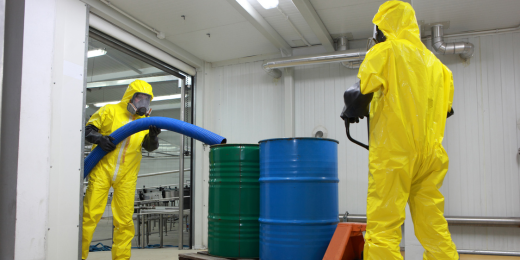The Best Strategy To Use For Reclaim Waste
The Best Strategy To Use For Reclaim Waste
Blog Article
Indicators on Reclaim Waste You Need To Know
Table of ContentsAn Unbiased View of Reclaim WasteReclaim Waste for BeginnersGetting My Reclaim Waste To WorkThe Best Guide To Reclaim WasteReclaim Waste Things To Know Before You Buy
Domestic sewage waste refers to the waste and items from a property septic tank. The correct administration and disposal of domestic sewer waste require fluid waste to be transferred to a sewer treatment plant where the correct techniques and tools are applied to purify and dispose of waste.
Industrial waste typically consists of potential dangers, such as flammable materials or a mixture of liquid and strong waste products, and needs an advanced and detailed disposal process. The disposal of business waste usually involves the purification of waste before transport to ensure secure and proper disposal. Hazardous waste is created from results and overflow of industrial processes and manufacturing.
This sort of waste can not utilize the same sewer management transport or processes as septic or industrial fluids. The hazardous waste administration procedure requires the assessment and screening of fluid waste before it undergoes the disposal process (industrial wastewater treatment). Runoff waste is the liquid waste that comes from runoff and excess stormwater in highly inhabited areas or cities
Overflow waste can create contamination and flooding otherwise handled correctly. Find out more concerning sewer cleaning and waste administration. Ensuring proper waste management can stop calamities and decrease environmental damage. Both individuals in domestic settings and professionals in commercial or manufacturing sectors can take advantage of recognizing the processes and guidelines of liquid waste management.
Facts About Reclaim Waste Uncovered
Contact PROS Providers today to find out about our waste administration and disposal services and the appropriate ways to look after the liquid waste you create.
(https://soundcloud.com/reclaimwaste1)Do you recognize what takes place to your water when you end, flush the commode or drain pipes the washing machine? No? Well, it deserves understanding. This so-called 'wastewater' is not just an essential resource but, after therapy, will be launched to our land, rivers or the ocean. Used water from toilets, showers, bathrooms, kitchen area sinks, washings and industrial processes is understood as wastewater.

water used to cool equipment or clean plant and tools). Stormwater, a form of wastewater, is drainage that flows from farming and urban locations such as roofing systems, parks, yards, roads, paths and seamless gutters into stormwater drains pipes, after rain. Stormwater streams neglected straight to local creeks or rivers, ultimately reaching the sea.
Not known Facts About Reclaim Waste
In Queensland, the majority of wastewater is treated at sewage treatment plants. Wastewater is moved from domestic or industrial sites through a system of sewers and pump stations, understood as sewage reticulation, to a sewer therapy plant. City governments build, maintain and operate most sewage treatment plants. Operators are licensed under the Environmental Protection Act 1994 to discharge treated wastewater at an acceptable ecological criterion right into rivers.
The Department of Natural Resources recommends city governments concerning handling, operating and preserving sewerage systems and therapy plants. In unsewered locations, neighborhood federal governments may require householders to install specific or family sewer treatment systems to deal with residential wastewater from bathrooms, kitchen areas, shower rooms and washings. The Division of Natural Resources authorizes using home systems when they are confirmed to be effective.
In some brand-new communities, treatment of some stormwater to remove clutter, sand and gravel has actually started utilizing gross pollutant catches. Wastewater therapy happens in 4 stages: Eliminates strong issue.
Makes use of small living microorganisms knows as micro-organisms to damage down and remove staying liquified wastes and great bits. Micro-organisms and wastes are included in the sludge.
Not known Facts About Reclaim Waste
Nutrient elimination is not available at all sewage therapy plants because it requires expensive specialist equipment. Clear liquid effluent created after therapy may still consist of disease-causing micro-organisms - liquid waste removal melbourne.

This usually suggests wastewater has to be dealt with or pollutants removed before it can be discharged to waterways. A lot of wastewater moves right into the sewage system. Under the Act, city governments administer approvals and licences for ecologically appropriate tasks (ERAs) entailing wastewater releases that may have a local influence. The department provides authorizations and permits to Periods including wastewater launches that may have a local or statewide influence.
Our Reclaim Waste Statements
Or else, samples are taken for laboratory analysis. Commonly lots of examinations are needed to establish the levels of each of the different pollutants such as oils, heavy metals and chemicals in water. Tracking gives factual information regarding water quality and can verify that licence problems are being satisfied. The info obtained with tracking offers the basis for making water high quality decisions.
Report this page